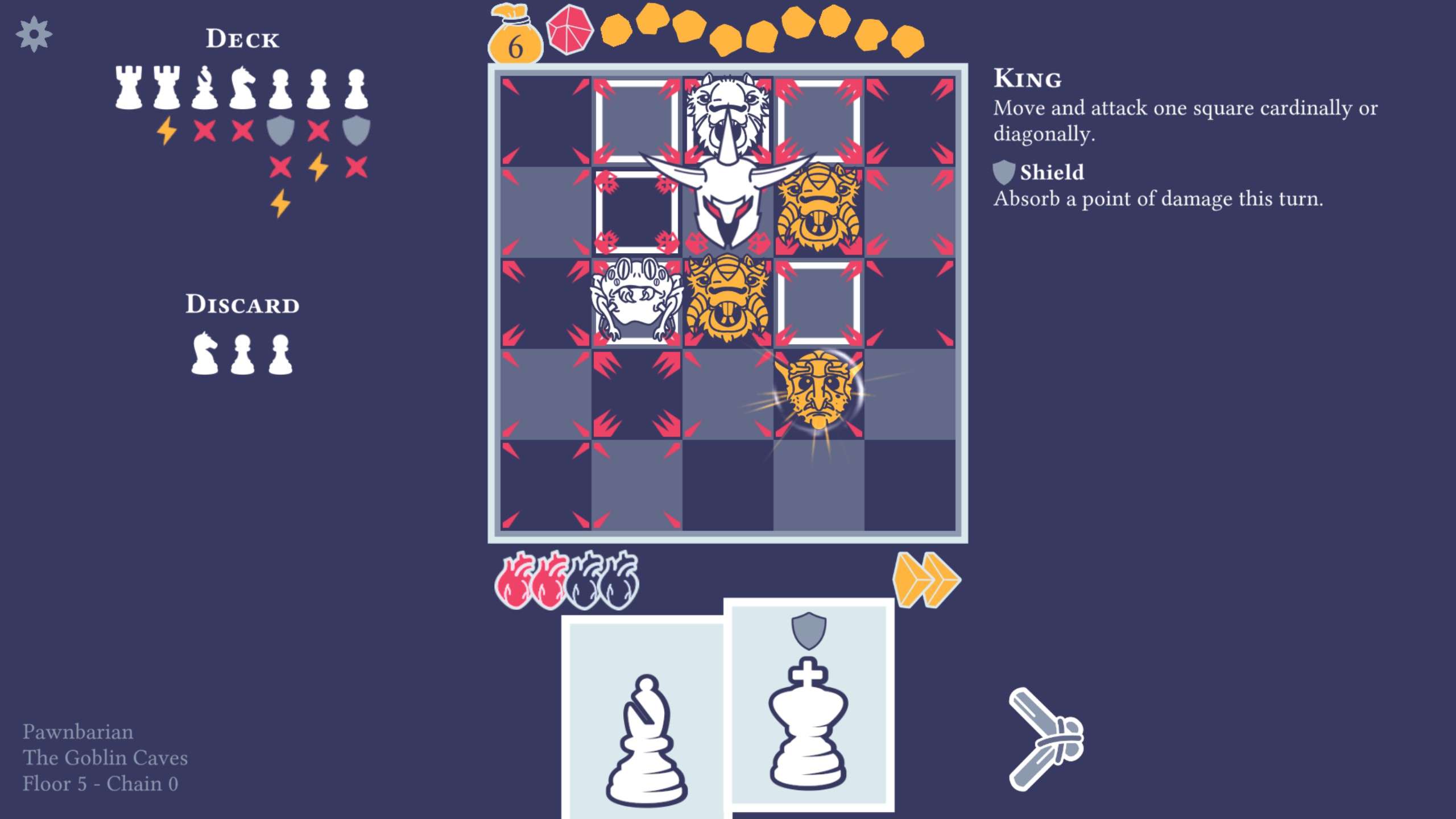
Pawnbarian PC Review
Not all games are created equal. Some are positioned around a particular emotion, or aim to inscribe a specific feeling upon their players by means of heartbreak, fear, or melancholy nostalgia, such as the recent gem, Unpacking. Others are built to topple the stereotypical, the traditional, and the routinely banal. These aim to break free of the shackles of what exactly defines a ‘game’. This may mean deconstructing tropes of a common genre in order to shine new light on players’ actions and motivations, like the now classic Undertale; or perhaps simply borrow the unique format of video games to craft a more free-form expression of art, even if there’s almost no direct interactivity outside of just experiencing the narrative, similarly to Before Your Eyes. They aim to spin a tale or tinker with an idea. Many, however, don’t aim for a higher meaning, nor a deeper sentimental connection – those are games developed in their purest form, made to be played for the sake of playing.
Near that end of that spectrum we can find titles like Doom Eternal. Sure, the base plot may pose the sad conclusion that humans are willing to risk everything for the sake of comfort, or profit (even going so far as to extract energy from Hell itself), but it never delves any further than that initial concept. It is nothing more than a jumping-off point, a reason for the whole thing to begin in a world where triple-A games are expected to have at least some modicum of a story. Whether as a way to distance oneself from reality, or for the constant dopamine hits, it is played, guilelessly, to be enjoyed.
Pawnbarian, equally, has nothing to say. It seems to be proud of that, wearing it like a badge of honour throughout the minimalistic design. Instead it is a refined, crystallized, polished, and perfect example of the original notion of a ‘game’. And it’s a damn good one.

In essence it’s a rogue-like puzzle game set on a 5×5 grid, where the goal is to defeat all enemies on each floor, culminating in an extra-difficult boss (as well as their cronies) on the 7th. With randomly generated arenas and a player’s measly two actions being limited to what moves are drawn from a deck, injecting yet more fickleness into every single round, the need to adapt is king. Where the true genius lies, though, is in how the player maneuvers their lone warrior around the board – by using the distinct functions of chess pieces, hence the name of the titular character. This even includes pawns only taking diagonally and knights ‘jumping’ into place, potentially over other units that would block a lesser soldier. And although I, as a board game fanatic, am rather jaded with chess (and its many flaws), it’s decidedly obvious how calculated this opening is. Everybody knows how chess works. It’s as if it is a part of human nature at this point, like it was innate primal knowledge already embedded in us from birth. This means that, not only does Pawnbarian have no need for long-winded tutorials or mechanic introductions, but that the choices presented each turn are immediately clear.
The depth of strategy and decision room in what is truly a rather tiny game is what’s important here. I think a great way to describe it would be in terms of ‘density’, as in how much is packed into the relative size of the experience. In which case, what we have here is a neutron star. There may only be three dungeons to overcome but the diverse enemy behaviours and traits akin to ‘nimble’, which allows them to dodge back once when attacked, demand entirely different approaches both in how and when to strike, as well as which upgrades to purchase between each floor. The shop may only have a couple of things to choose from, like extra hearts, orthogonal and diagonal ‘splash’ attacks (that can take down whole groups of adversaries), and a purification power exclusive to the Knight Templar, but each upgrade is a vital gambit. And there may only be three characters to master, but, with differently weighted decks and vastly disparate attributes, the Pawnbarian’s quirk of transforming pawns into queens at the top of the board for instance, they make for entirely different scenarios. This is especially true of the Shogun, who actually uses promotable Shogi pieces for movement in lieu of chess, and can build up what is essentially an ultimate attack to be triggered on command. The downside, on the other hand, being that they have a hard time retreating back down the space.

The turn-to-turn gameplay often feels more like a delicate ballet, as one must be incredibly deliberate about their footing as they proceed around the cramped twenty-five squares, poking in and out of combat range. Just twenty-five zones, with between four to ten of them usually being posted up by assailants, each of which have different attack ranges, and even more being made completely unusable due to blight, a sort of stackable poison that deals damage once the round ends. There’s so much to ponder, made yet more complex by a counter that trickles away precious gold and a single hit of healing as the fight goes on, rewarding players who can finish out rooms swiftly. Opening the possibility to tank a few blows in exchange for a massive assault or to close out a stage quickly – just another potential stratagem in an ocean of considerations. With fatal blunders waiting around every corner, it helps that the design of Pawnbarian, both interface and experience, is done masterfully. With animations and markers reminding of dangers and most enemy talents, the simple composition is nothing short of beautiful, artistically and functionally.
Every play is familiar but somehow still feels like a fresh and profoundly pensive challenge. It’s never known what kind of rooms you’ll be pitted against, or even what you’ll have at your disposal next turn. And, sure, sometimes this overt unpredictability can absolutely bring a good run to its knees, something I’m known to despise usually, but here it feels different. I suppose it’s due to the fact that there’s simply not enough time to get attached to a single build, as a dungeon may only take fifteen minutes to battle through. Perhaps it’s the devilishly moreish nature of the game paired with the ability to instantly jump right back in that alleviates my frustration, leaving no time for ruminating over the loss of a promising attempt. I do find it a little unfortunate that the content is somewhat slim, even if a lot of satisfying, tactical gameplay can be wrung out of what is currently on hand. In spite of ‘Chains’ offering many, many more hours of replayability via layers of perilous modifiers that pile up to become totally insane, it would still be nice to see more dungeons, enemies, and bosses in the future. Pawnbarian isn’t for everyone, being a hardcore puzzle game at heart, but it is a great shining example in its field and a must-play for those whose curiosity is piqued by it. Now I just need my Steam Deck to arrive so I can play on the go…
